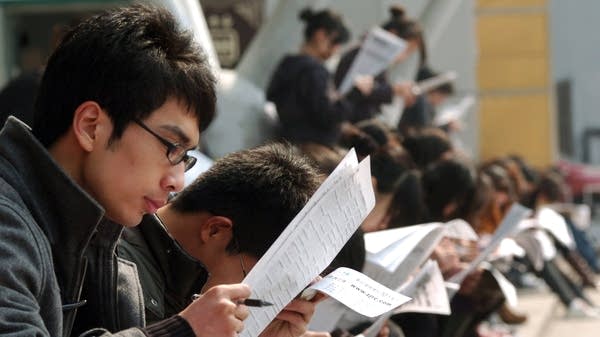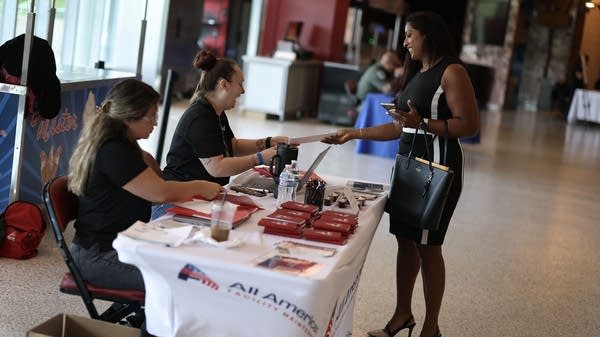The tough job market for new college grads probably isn't all due to AI
When it comes to the job market for new grads, there are also cyclical and long-term trends at play.

Last month the Anthropic’s CEO Dario Amodei made an alarming prediction: Artificial intelligence could wipe out half of entry-level white-collar jobs in the next one to five years. A look at the current job market for recent college graduates isn’t exactly reassuring.
Unemployment for degree-holders age 22 to 27 is almost 6%, the highest it’s been since the pandemic. And crucially, it’s significantly worse than the unemployment rate for all workers, which hovers around 4%. That kind of inversion has very rarely been seen over the last three decades the Federal Reserve has been tracking. But it doesn’t necessarily mean we’re at the beginning of a white-collar apocalypse.
It’s cold comfort to recent grads, like Yael Grimaldi, who just earned a bachelor's degree with honors from Santa Clara University Leavey School of Business.
“I thought I would have a job lined up by graduation,” he said. He’s been looking for a job or internship in digital marketing, putting in about two applications a day at big companies and small ones, up and down the state of California. He’s had a few interviews, but no offers yet.
“As a first generation student, I feel like there's a lot of pressure,” said Grimaldi. “I'm the first in my in my family to get a degree, and you know, it has a lot of value, but not as much as I thought it would freshman year.”
The labor market advantages of a college degree have been eroding for at least 10 years, said economist David Deming at Harvard’s Project on the Workforce.
“A college degree, for most young people who are thinking about it, is still a very good investment, but it's no longer the absolute guarantee that it once was,” he said, noting the wage premium commanded by college-educated workers has plateau’d since the 2010s. And the edge new grads had finding work began to dissipate in the mid-2010s partially because there are more of them.
“The share of young people graduating from college has increased by about a third in the last two decades,” said Deming, “so there’s just many, many more people graduating, and that's a very good thing.”
Meanwhile, he said we’re now seeing a slowdown in hiring that is cyclical.
“You want to sort of think about a young college graduate like a capital investment,” he said. “When businesses are feeling confident about investments overall, they tend to hire more college graduates and when they’re less confident, they hire fewer.”
Right now things are definitely uncertain.
“Even if it's not a technical hiring freeze, I think a lot of companies are just kind of taking a step back,” said Rosella Graham who graduated from Middlebury College in Vermont in May.
She studied International Politics, Economics and Spanish and interned last summer for the State Department. She’s looking for government jobs, which have become less numerous.
She wonders if she’ll end up waiting tables or making lattes for now, like some of her friends have.
“Thinking about a lot of friends that are going to wait out the kind of tumultuous job market right now by taking those other jobs — it just kind of frightens me that that is a reality,” she said.
AI could be contributing but only about 6% of firms across the economy have adopted the technology according to Goldman Sachs.
In tech, though it’s a different story. A report from venture capital firm SignalFire found the number of new grads hired by Big Tech fell 25% since just 2023 and UC Berkeley computer science professor James O’Brien believes AI is the driving force.
Take a junior developer role, which he said is mostly tedious coding: “People call it boiler plate code, or, you know, drudge work or something. But it's also a really great way to learn.”
Large language models can now handle that and do it a lot faster.
O’Brien said Big Tech companies brag about how much of their code is written by AI at the same time they announce thousands of layoffs. Companies he advises, which used to ask him to recruit students, no longer need the help. And startups are getting smaller and smaller.
“How many times do you have to get the same message for at some point you say, hey, maybe that message is the message,” O’Brien said.
New grad Yael Grimaldi is still optimistic he’ll get a message about a job at some point. In the meantime, he’s using AI to build a website for his photography side hustle, and, just in case, applying to the Peace Corp.













